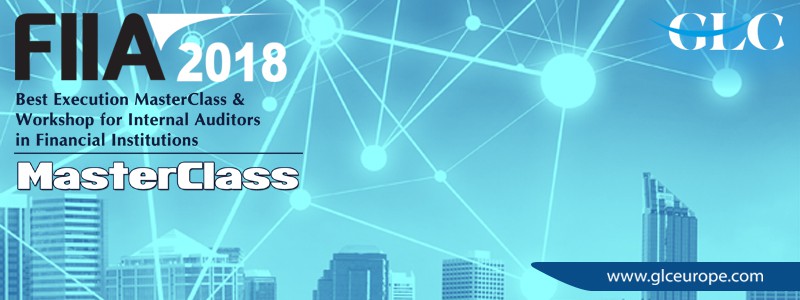The current banking regulatory paradigm requires Internal Audit and its Chief Audit Executive, as the 3rd Line-of-Defense, to play a leadership role in assisting and ensuring Supervisory and Executive Boards (Non-Executive and Executive Directors) to perform their roles and responsibilities. The new demanding regulatory landscape impacting banks’ business models, including restrictions resulting from demanding capital and liquidity requirements (CAR – Capital Adequacy Ratio and LCR – Liquidity Coverage Ratio), IFRS 9, and lending capacity adjustments resulting from RWA – Risk Weighted are notably relevant challenges.
Objectives and role of Internal Audit become particularly challenging, as the pressure on costs and the need to increase the headcount in Risk and Compliance functions is restricting the minimum headcount requirements of Internal Audit, the need for more demanding skills of Internal Auditors, namely in areas that were not of concern in the previous paradigm. As a lateral impact, Internal Audit faces often restrictions in supporting Non-Executive and Executive Directors in performing their roles.
Therefore, is critical for the Chief Audit Executives to develop a vision, strategy and tactics to build negotiation arguments to allocate talent, time and resources to a rigorous and robust audit plan. This requires redesigning Internal Audit strategy and tactics, prepare a robust narrative to discuss with Supervisory and Executive Boards, and ensure that the 4 Lines-of-Defense are operating efficiently and effectively.
Special features:
- Best practices
- Case studies
- Templates and Step-by-step guides
MasterClass includes:
- Specific and exceptional educational insights combining modern theories and practical examples
- Workshop using advanced international experience and knowledge of high-level expert
- Special materials and templates for future use by the participants in their work
Learning outcomes:
- Chief Audit Executive – Frame the role of Chief Audit Executive and Internal Audit, as the 3rd Line-of-Defense, to play a leadership role assisting Supervisory and Executive Boards to perform their responsibilities
- Talent – Plan for the need of more demanding skills for Internal Auditors, namely in areas that were not of concern in the previous regulatory paradigm (e.g., risk control and compliance, and risk culture, GDPR – The General Data Protection Regulation)
- Vision, Strategy and tactics – Rethink Internal Audit vision, strategy and tactics to develop a robust narrative with boards of directors to ensure that the 4 Lines-of- Defense are operating efficiently and effectively and in line with internal audit standards (e.g., IIA, EBA, WIPO)
- Business models – Understand the regulatory landscape demands impacting business models and lending capacity (e.g., RWA – Risk Weighted Assets)
- Capital and Liquidity – Consider in the Audit Plan the restrictions resulting from capital and liquidity requirements (Tier 1, CAR – Capital Adequacy Ratio and LCR – Liquidity Coverage Ratio), SREP, stress testing and AQR – Asset Quality Review
- IT and Cybersecurity – learn the challenges posed by IT and cybersecurity considerations to banking, standards for Internal Audit to cover, and expectations from NCA
- Audit Plan – Acquire negotiation arguments to allocate Talent, time and resources to a rigorous and robust Audit Plan to become a trusted business advisor – best practices – regulatory insight – case studies – templates and step by step guides
The Trainer:
 Prof. Dr Duarte Pitta Ferraz is a Professor of Governance & Banking at NOVA – School of Business and Economics and at Nottingham Business School, Doctor of Business Administration (Nottingham Trent University, UK), as well as a Portuguese Statutory Auditor (ROC), and member of the Continuous Professional Development Committee of the Portuguese Institute of Chartered Accountants & Statutory Auditors (‘OROC’).
Prof. Dr Duarte Pitta Ferraz is a Professor of Governance & Banking at NOVA – School of Business and Economics and at Nottingham Business School, Doctor of Business Administration (Nottingham Trent University, UK), as well as a Portuguese Statutory Auditor (ROC), and member of the Continuous Professional Development Committee of the Portuguese Institute of Chartered Accountants & Statutory Auditors (‘OROC’).
Holds positions as Independent Non-Executive Director at: EIB – European Investment Bank (Chairman of the Audit Committee), Infraestruturas de Portugal (Supervisory Board and Financial Matters Committee), Banco BIC Português (Board of Directors, Audit and Internal Controls Committee, and Governance Committee), GESTMIN SGPS (Audit Committee), and member of the Privatisation Scrutiny Committee of TAP – Air Portugal. Member of the jury of IRGA – Investors Relations and Governance Awards sponsored by Deloitte.
Published scientific papers about corporate governance, mergers and acquisitions and audit in Emerald – Measuring Business Excellence, Int. J. Business Excellence, and Corporate Ownership & Control. Member of Harvard Business Review, and McKinsey Quarterly advisory boards. Speaker at numerous conferences abroad.
Previously worked at Banco Comercial Português (20 years) as Managing Director (international division, investment and corporate banking, and private banking) and member of boards of directors and executive committees (Bank Europa Turkey, Nova Bank Greece, SOFID Development Bank, Banco Millennium Angola). Member of the Global Board of Directors and Executive Committee of BAFT – Bankers Association of Finance and Trade (Washington, D.C.), as well as its co-Chairman for Europe. Vice-Chairman of Portugal-China Chamber of Commerce. Worked at Deloitte and Philip Morris North America (13 years).



